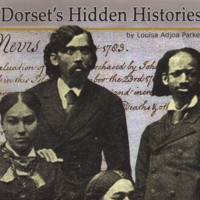
Dorset's Hidden Histories
DEED (Development Education in Dorset) works within the community to develop understanding of global education and cultural diversity. The charity produced and made available to hire the Dorset's Hidden Histories touring exhibition, which explored 400 years of the stories of people with African and Caribbean heritage across Dorset, Bournemouth and Poole. Many Dorset families were involved in slavery, either owning or trading in African slaves, and Black people were brought to Dorset by slave traders to live as servants in the large country houses. The exhibition, which is still available to borrow, also includes details of African American GIs on Poole Quay, a freed enslaved American living in Bournemouth, and Belle Davis, the African-American singer and dancer who performed in Weymouth in 1917. The organisation worked with Louisa Adjoa Parker, a local poet and black history researcher, to provide creative writing workshops to explore the exhibition. An accompanying booklet, written by Parker, can be purchased from DEED.
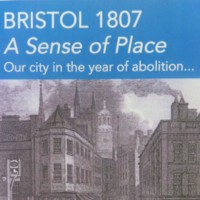
Bristol 1807: A Sense of Place
As part of the Abolition 200 programme, the Bristol 1807 project set out to explore the lives of ordinary Bristolians in 1807. An exhibition in the Central Library, and a series of touring exhibitions in Bristol's libraries and community centres explored society, culture, trade and travel in 19th century Bristol, a city and port with many ties to transatlantic slavery. The project collaborated with local schools to provide creative art workshops for children around themes of slavery and freedom. There were also 'Treasures in Store' hands-on sessions with rare library artefacts concerned with the period of abolition including books, newspapers and everyday objects. A book emerging from the project, 'Bristol in 1807: Impressions of the City at the Time of Abolition' by Anthony Beeson, was published in 2009.
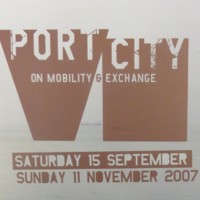
Port City: On Exchange and Mobility
Port City was a large-scale exhibition featuring over 40 international artists and addressing issues of migration, trade and contemporary slavery. Set in the arts centre and gallery Arnolfini, it was accompanied by a programme of art, music, film, literature and educational activities. Coinciding with the bicentenary year, several works explored Bristol's histories of trade, as well as a contemporary port. For Seeds of Change, Brazilian artist Maria Thereza Alves researched sites around the Floating Harbour where ballast would have been off-loaded. The ballast seeds discovered were germinated by local groups so as to make a garden of ‘living history’, reflecting the different routes travelled by Bristol merchants. Other highlights included a model of a 'global village' made from sugar by Meschac Gaba and kaleidoscopes showing contemporary scenes from the triangle of the transatlantic slave trade by Mary Evans.
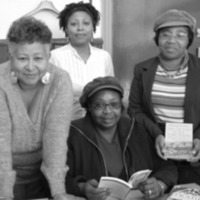
Interwoven Freedom
SCAWDI are a Birmingham-based community group specialising in working with local volunteers to research the early presence of Black people in the West Midlands. In collaboration with English Heritage, ‘Interwoven Freedom’ enabled a group of local women to visit archives, exhibitions and historic sites and explore the role of women in the abolitionist movement. The participants drew on traditions of abolitionist women such as Elizabeth Cadbury creating and distributing workbags filled with anti-slavery manifestos by making their own textile bags from fair trade cotton and African cloth. They wrote their own manifestos which mixed historical facts with fictional stories and poems. The accompanying exhibition of textiles, text panels and an audio documentary toured London and 11 regional venues. The exhibition included photographs documenting the project by photographer Vanley Burke.
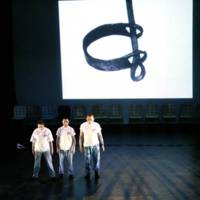
Remembering Slavery Freedom Performance
Remembering Slavery 2007 involved museums, galleries and other cultural organisations across the North East of England in a programme of exhibitions, events, performances, lectures and activities to explore the themes of slavery and abolition, and identify connections with the region.
The Freedom Performance was a collaboration between Tyne and Wear Museums, Dance City (a dance school in Newcastle), professional artists, performers and community and youth groups from across Northumberland and Tyne and Wear. The performance was inspired by music, dance, literature and objects relating to the slave trade and its legacy.
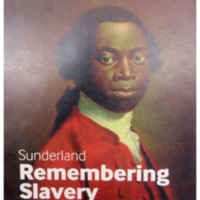
Sunderland Remembering Slavery
Remembering Slavery 2007 involved museums, galleries and other cultural organisations across the North East of England in a programme of exhibitions, events, performances, lectures and activities to explore the themes of slavery and abolition, and identify connections with the region.
In Sunderland, the Museum and Winter Gardens hosted a varied programme of activities under the Remembering Slavery 2007 umbrella, including African drumming sessions, African inspired textile crafts, poetry workshops and storytelling. There were also guided walks around the sites associated with James Field Stanfield, the leading Sunderland campaigner against the slave trade. Elsewhere in the city, The Power of Words: an Image of Africa Past and Present was a creative writing project in collaboration with the Sunderland African Association. Participants worked with poet and writer Sheree Mack to produce poems exploring slavery and its relevance in contemporary times.
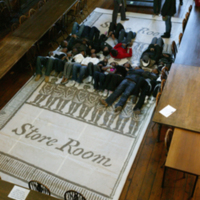
Changing Perspectives
Changing Perspectives was a community-based initiative based around the experiences of twenty-five African and Caribbean families from the North-East, to explore how their life in the UK contrasts with the lives of their ancestors. The project created a multimedia archive of cultural responses to celebrate the heritage of these families. This included oral testimonies, creative writing, photography, digital storytelling and art, emerging from a variety of community-led workshops. A series of workshops were held at Durham University Library, Archives and Special Collections (pictured), including a session aimed at children and young people, which focused on the experiences of children in the slave trade via extracts from the autobiography of Olaudah Equiano. Project outputs included a book, an interactive website, an exhibition of words and pictures of the community, an oral testimony collection, and series of documentary films. A key aim of the project was to promote community cohesion and develop cross cultural awareness and understanding.
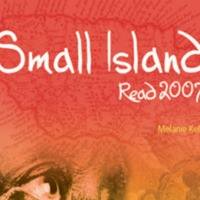
Small Island Read 2007
This community-based mass reading scheme drew together partners from four areas of the UK; Bristol and the South West (Great Reading Adventure), Liverpool and the North West (Liverpool Reads), Hull (Hull Libraries) and Glasgow (Aye Write! Bank of Scotland Book Festival). 50,000 free copies of Andrea Levy’s award-winning novel 'Small Island' were distributed - a story of Jamaican slave descendants arriving in the UK in the 1940s, it addressed resonant themes of identity, racial awareness, forgiveness, ignorance and survival. There was also an accompanying reader's guide. Younger audiences took part by reading Benjamin Zephaniah’s 'Refugee Boy', or Mary Hoffman’s 'Amazing Grace'. Activity packs inspired discussion of historic and contemporary issues addressed in the texts. Featured are some of the responses of pupils from Parson Street Primary School, Bristol, to 'Refugee Boy'.
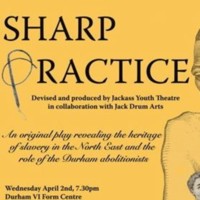
Sharp Practice
Inspired by archival research, ‘Sharp Practice’ was a touring play exploring the slave trade and the role of abolitionists from the North East of England in its demise (and, in particular, the work of Granville Sharp). The play was devised and produced by Jackass Youth Theatre, in collaboration with professional artists from Jack Drum Arts. Each performance was accompanied by an exhibition exploring the North East’s links to slavery and abolition, researched by members of the theatre group. Working with heritage professionals, their research took the performers to Newcastle, Hull, Liverpool, Gloucester, London and the University of Virginia.
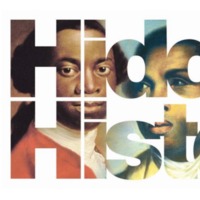
Hertfordshire's Hidden Histories
This partnership project, led by Hertfordshire Archives, investigated the links between Hertfordshire people, the slave trade and abolition through stories from original archival documents. Project outcomes included creative workshops, a booklist, a DVD documentary, a heritage trail booklet, and collaboration with the project for the restoration of the Thomas Clarkson monument in Thundridge. The monument was erected in 1879 to mark his involvement in the campaign to abolish slavery. The ceremony to re-dedicate the monument in November 2007 involved pupils from Thundridge Primary School performing a dance that they had developed with arts-led charity Theatre Is….